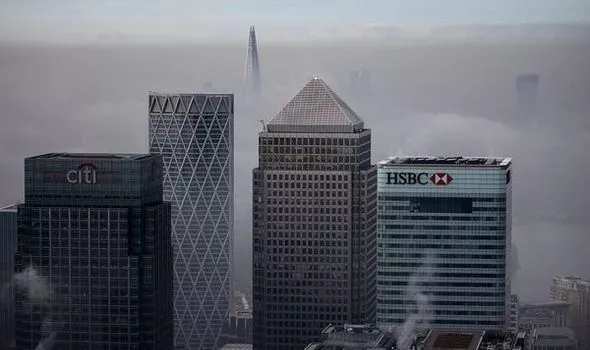HSBC more than doubled its profits in the first half of the year, as rising interest rates increased returns for the London-headquartered lender.
The bank reported pre-tax profits of $21.7bn (£17bn) in the first six months of 2023, up from $8.8bn during the same period last year, despiteputting aside more money to protect against potential defaults, as rising living costs put pressure on customers’ finances.
It is now handing more money back to shareholders, who will benefit from dividend payments worth 10p a share, as well as a $2bn share buyback. The move is expected to strengthen HSBC’s battle against its largest shareholder, Ping An, which has been pushing for a break-up of the lender to increase returns for investors. However, shareholders overwhelmingly voted against a break-up at the bank’s annual shareholder meeting in May.
Bankers are in line for larger payouts, too. While HSBC said it would not disclose the total bonus pool for bankers until next spring, the lender confirmed it had put aside $200m more for performance-related pay for staff compared with last year. The bank paid £3.4bn in bonuses to top-performing bankers for 2022.
Rising interest rates have allowed banks to charge borrowers more for loans and mortgages, increasing their bottom-line profits.
However, this has caused controversy in the UK, where politicians have accused banks such as HSBC of profiteering by failing to raise rates on savings accounts at a similar pace as on loans and mortgages. This has resulted in intervention by the UK regulator, which on Monday promised to take “robust action” against laggards in the savings market.
While HSBC makes most of its revenue in Asia, its ringfenced UK bank – which primarily serves retail customers and smaller businesses across the UK – accounted for about a quarter of the group’s $18.3bn worth net interest income. Net interest income measures the difference between what the bank charges borrowers and what it pays out to savers.
HSBC UK accounted for about 22% of the group’s total pre-tax profits in the first half of the year.
Higher interest rates have increased pressure on borrowers whose finances are increasingly stretched by rising inflation, making them more likely to fall behind on payments.
HSBC said it had put aside $1.3bn to cover losses linked to customers falling behind on loan and mortgage payments in the first half of the year. That is slightly higher than $1.1bn last year.



